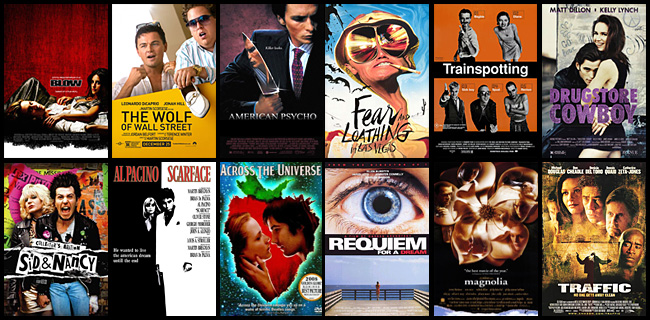Whether as a self-care practice, for fun, or for wisdom, reading in recovery can provide us with a sanctuary of knowledge and peace. The following list of recovery-oriented books has been curated by our recovery community to uplift and inspire. These books range from spiritual practice guides to deep dives about healing and essential staples in personal growth. We hope they provide you the same insight and relief they have provided us.
Reading in Recovery—Some of Our Favorites
This in-depth exploration of substance abuse and mental health deals with childhood trauma’s link with addiction and society’s misguided treatment of addicts. Dr. Maté illustrates with anecdotes of addiction and the plight of social alienation and mental health struggles. As one in recovery, this can sometimes be a deep and painful read, but the information presented is profound and unequivocally human.
Russell Brand is always been forthcoming about his struggles with addiction. This “manual of self-realization,” as he calls it, recounts his struggles and insights from his 14-year journey with recovery. Brand is able to speak on a wide range of addictions from drugs, to sex, to alcohol, and more because he lives it. The wisdom in this book helps everyone, not just those who are sober, to gain a deeper understanding of what it means to be human. In addition, his witty self-effacing style is approachable and highly entertaining.
Most people who read The Power of Now say it changes their lives. The message is simple but revolutionary. Be prepared to enter new realms of thought while reading this book. We included it on this list because this tome has the profound ability to connect us with the present, with ourselves and humanity. What’s more, this spiritual foundation has been key for many in recovery and it is an amazing resource for developing this sense of connection.
A lighthearted read, The Four Agreements is based on ancient Toltec wisdom that encourages us to shed old patterns, limiting beliefs, and live simply and happily. This book is an easy read and a staple for many. Core teachings related to letting go of destructive behaviors like people-pleasing, self-doubt, and perfectionism are discussed. Don Miguel Ruiz helps many explore deeper relationships with life, and with themselves.
-
We can’t say enough about the importance of self-love and acceptance in recovery—and in life! Marissa delivers practical advice for the most logical thinkers to reason with the mind and find a space of true self-acceptance. As a hypnotherapist, she believes you can get to the root of your problems through transformative awareness. This book illustrates her methods and she even provides free meditations on her website (matissapeer.com) to aid the process of transformation.
-
As a newly sober Hollywood screenwriter, Julia Cameron sought creativity without her substances to aid her. This book is the path she created to get back to creativity and self-expression. In addition, it provides a positive path to inspiration for anyone, especially if you think you are not creative. The activities in this book will expand your being and wellbeing regardless of if you call yourself an artist or not.
-
A world-renown Buddhist, Pema Chödrön has published many books that soothe the soul and mind. This book is no exception. She manages to help us shine grace and love toward any circumstance we may be going through. Furthermore, as most in recovery know, things usually fall apart before they can heal. But, they do heal.
-
You can heal your life is a timeless and iconic book of affirmations. One of the original books on the law of attraction concept, this work is all about self-love and nourishing a positive mind. Louise offers practical exercises throughout the chapters to facilitate healthy change. Spoiler alert: just know that the person you were before you start this book will be vastly different than the person you are when you finish.
-
A bestseller, The Body Keeps the Score is a new thought-provoking book about how trauma is held and expressed in the body. It explores new ways of healing the mind and body that may be more effective than traditional medicine and treatments. Many of us in recovery know that deep unhealed trauma can be a source of addictive patterns. If you are curious to learn more about trauma, and healing, this is the book for you.
-
A list of books for recovery would not be complete without the Big Book of Alcoholics Anonymous. This book has delivered wisdom and sobriety to people all around the world for over 80 years. Written by William G. Wilson (Bill W.), a recovering alcoholic in the 30s, this book lays the foundation for the 12-Step Program Alcoholics Anonymous. It includes timeless practical advice and recovery stories of those who have found sobriety. If you want to know more about this book, simply google ‘AA meetings near me’ and you will learn all you need to know. The Big Book is the core programmatic work of AA. It is the first book written on the program of AA featuring a very clear breakdown of the steps and details on how to recover.
Honorable Reading Mention
Waking the Tiger: Healing Trauma by Peter Levine
Reading in recovery can bring profound teachings. We know, from experience, that trauma plays a major role in destructive behavior patterns. Peter Levine is a leader in trauma recovery. Another deep read, this book recounts his early encounters with patients and his discovery that the human body has an innate ability to release trauma, even events that we cannot recall or that perhaps seem to minor to be labeled as traumatic. He has created helped many recover from serious physical and psychological ailments through Somatic Experiencing, revolutionizing the way we see and deal with trauma.
We hope you enjoy these books. Now is a perfect time to unplug from screens and crack open a good book. It’s an act of self-care that always enriches.
If you or someone you care about is struggling, you are not alone. Please ask for help.










